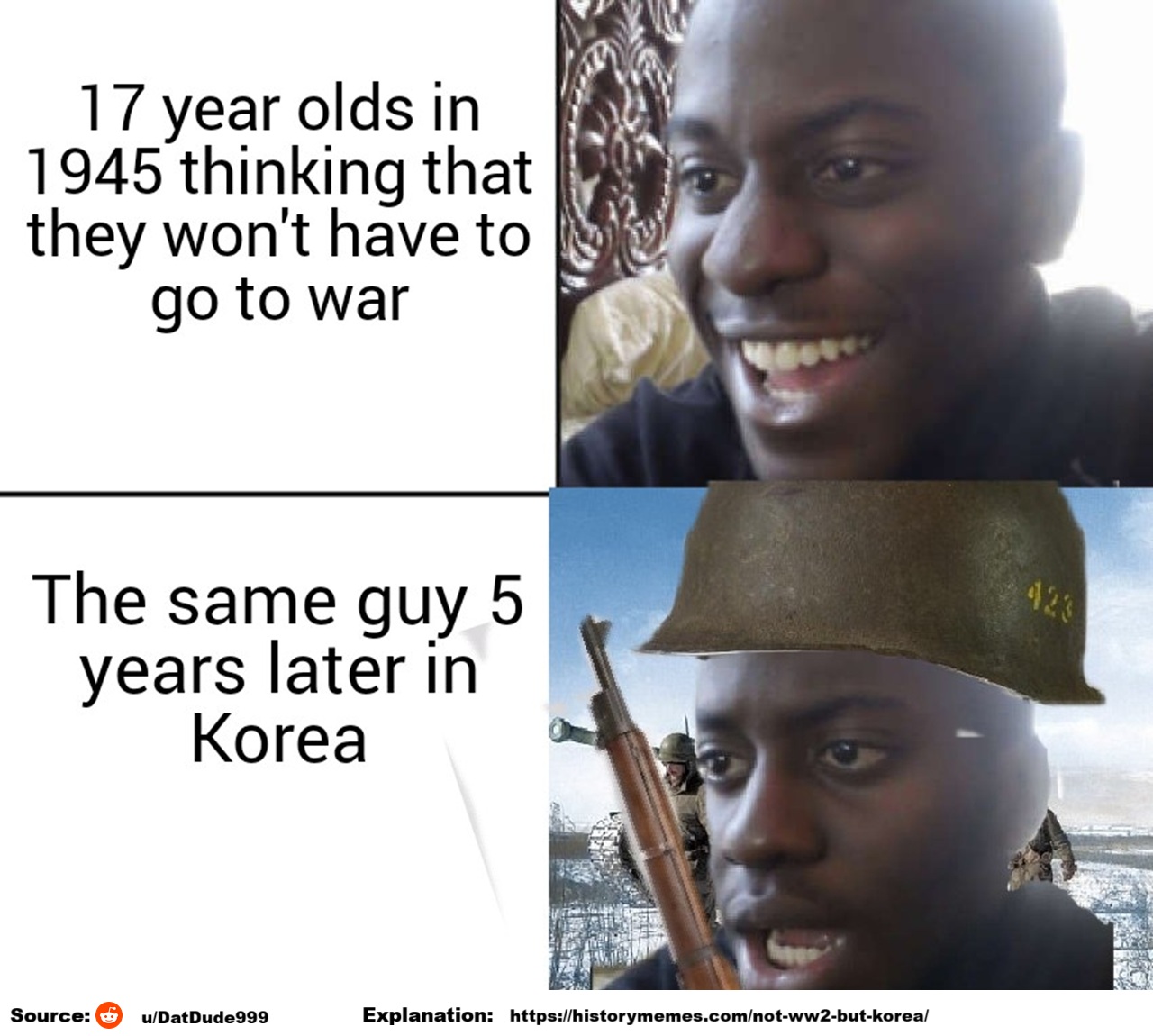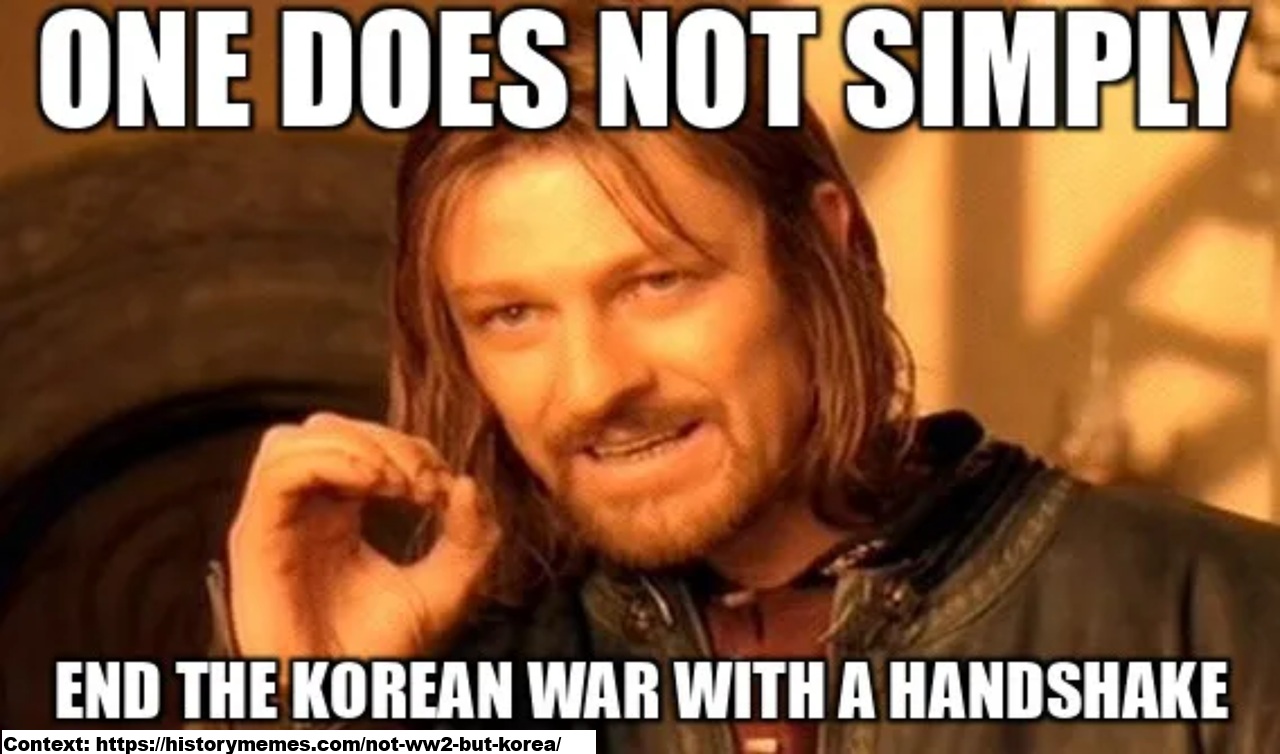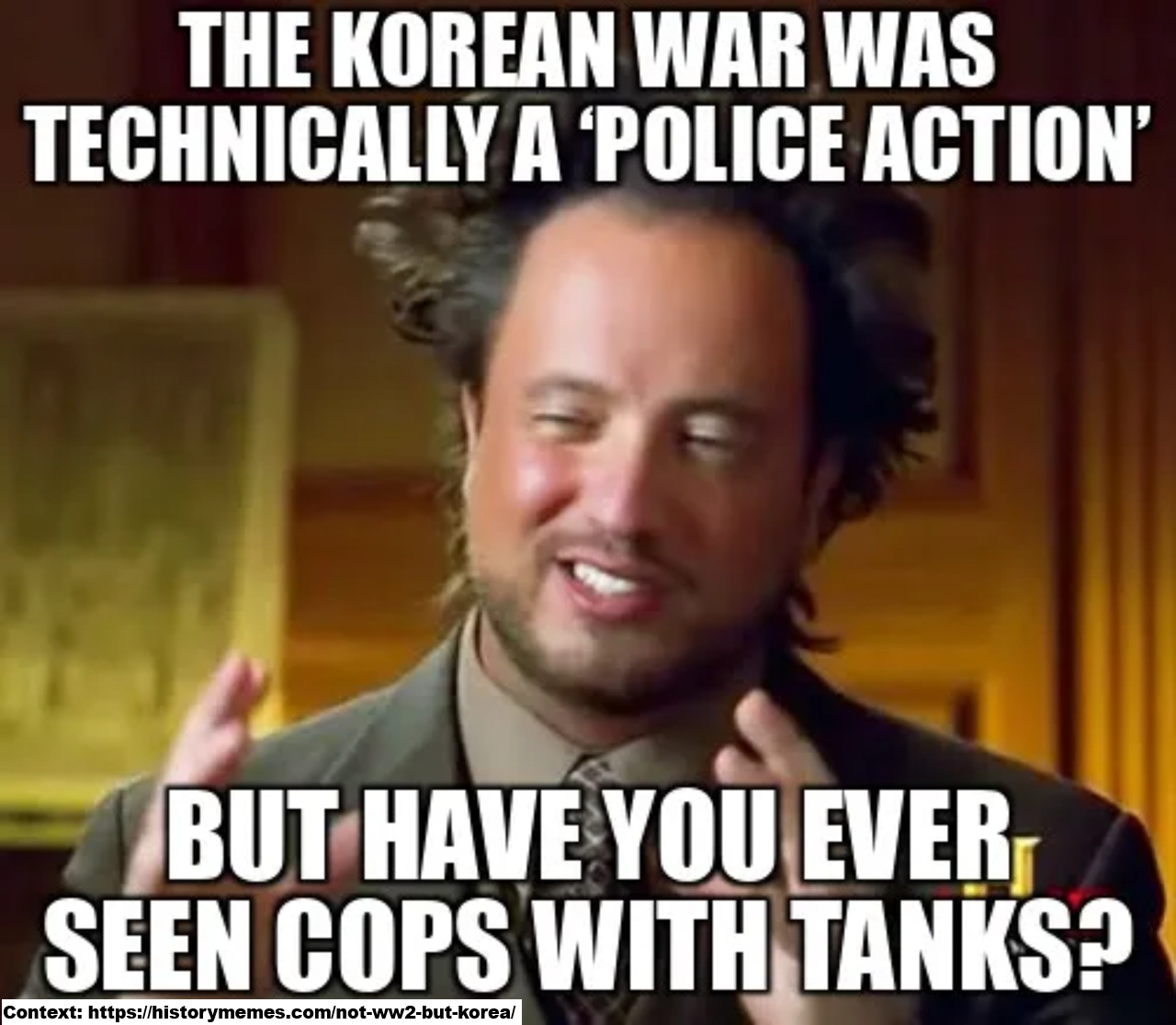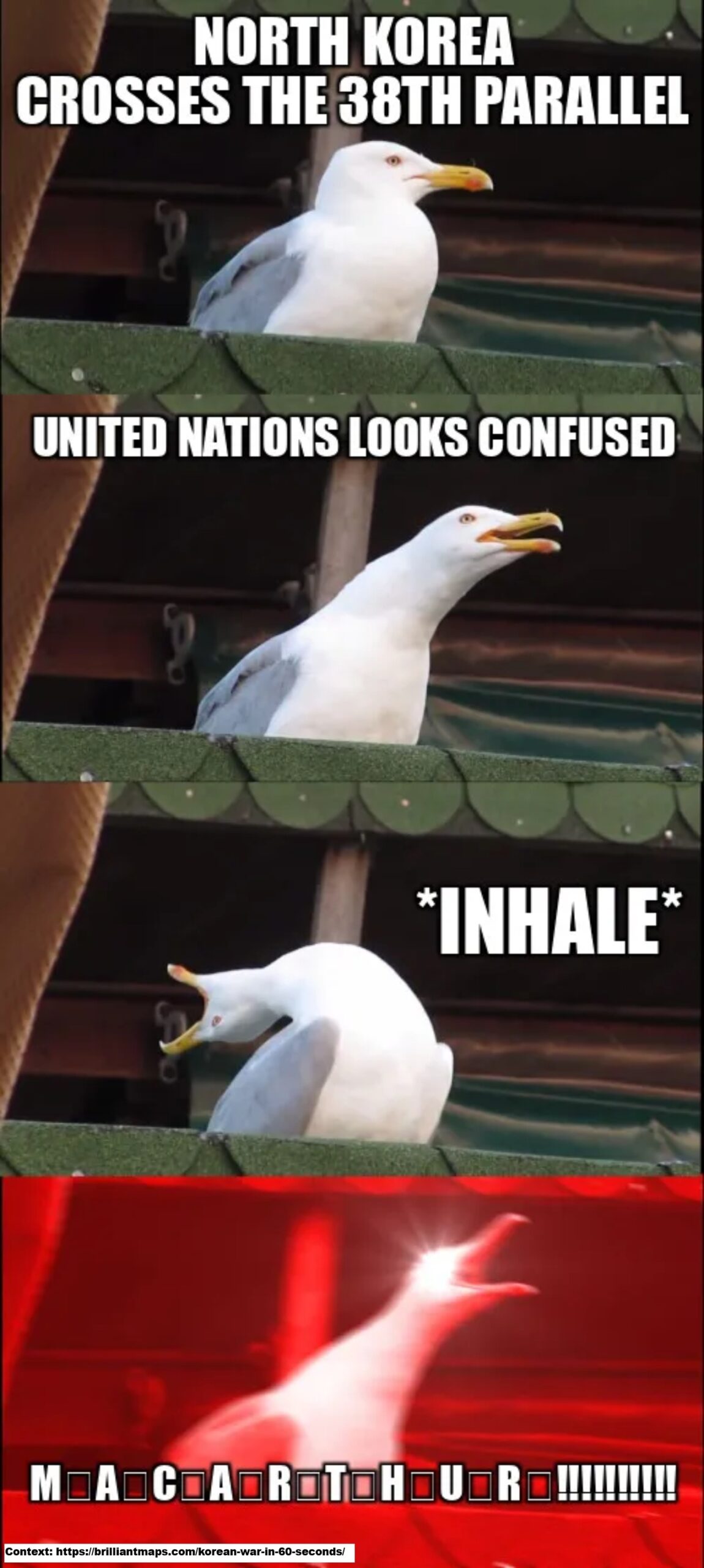
Breakdown:
Top panel:
“17-year-olds in 1945 thinking that they won’t have to go to war.”
In 1945, WWII ended. Teenagers who were almost old enough to be drafted felt relieved that the war was over before they had to serve.
Bottom panel:
“The same guy 5 years later in Korea.”
Just five years later, in 1950, the Korean War broke out. Many of those same young men, now in their early 20s, ended up being drafted or volunteering for another major conflict. E.g. Don Draper from Mad Men is good fictional example.
So the joke is about the short peace interval between the end of WWII (1945) and the start of the Korean War (1950), which dashed the hopes of young people who thought they had avoided war forever.
Historical Context:
- WWII ends: August 1945
- Korean War begins: June 25, 1950 (5 years later)
The U.S. military draft was reinstated in 1948, so many men born in the late 1920s (who were teens in 1945) were eligible for service when the Korean War began.
How long soldiers served in Korea
- Typical tour of duty for U.S. soldiers in Korea was 12 months (1 year) for enlisted men and 13 months for officers.
- However, many reservists and draftees served longer because of mobilization and rotation delays.
- The war itself lasted from 1950 to 1953, ending in an armistice (not a peace treaty).
Here’s a video of the entire war in just 60 seconds:
The Forgotten War?
the Korean War (1950–1953) is often called “The Forgotten War” for several interrelated reasons.
It happened right after World War II
World War II was the largest and most transformative war in modern history, and it ended in 1945. When the Korean War began only five years later, the world (and especially Americans) were war-weary.
- People were still recovering from the trauma, loss, and rationing of WWII.
- The public didn’t have the same appetite for another faraway conflict so soon.
As a result, public enthusiasm and attention were much lower than for WWII.
It happened before Vietnam, and was then overshadowed by it
The Vietnam War (1955–1975) became a defining event for an entire generation, dominating the news and pop culture.
- Vietnam was far more controversial and long-lasting.
- The protests, music, films, and media coverage made Vietnam unforgettable.
By contrast, Korea was shorter, less publicized, and lacked the same cultural imprint.
There was no clear victory or closure
The war ended in an armistice, not a peace treaty.
- North and South Korea remain technically at war even today.
- The border (the DMZ) is still heavily fortified.
- Americans didn’t feel a clear sense of triumph, unlike WWII’s unconditional surrender of the Axis powers.
This ambiguous outcome made it harder for the public to celebrate or commemorate.
Limited media coverage at the time
The Korean War was the first major conflict of the television age, but TV news was still in its infancy.
- Few reporters were on the ground.
- Graphic combat footage was rarely shown.
- The war lacked the dramatic propaganda and public campaigns that surrounded WWII.
As a result, it didn’t stay vivid in the public imagination.
Veterans were often overlooked
Korean War veterans came home to little recognition or public gratitude, especially compared to WWII veterans.
- There were no major parades.
- Many were sent home quietly as the nation moved on to the Cold War and prosperity of the 1950s.
In short, the Korean War is “forgotten” not because it was unimportant, it was a major Cold War conflict that cost over 36,000 American lives and millions of Korean casualties, but because it fell between two more dramatic and heavily publicized wars, making it fade from public consciousness.
For more about the Korean War see the following books:
- The Korean War: A History
- The Coldest Winter: America and the Korean War
- This Kind of War: The Classic Korean War History, Fiftieth Anniversary Edition
A few more memes:



Leave a Reply